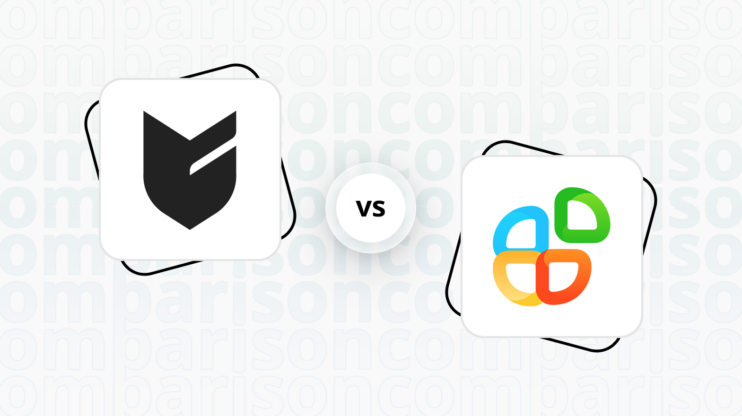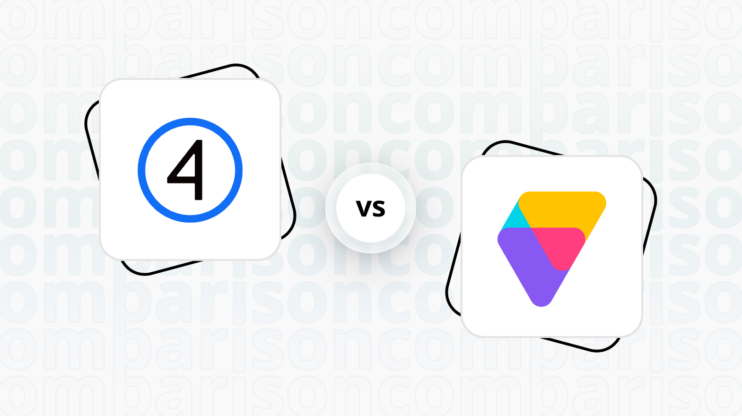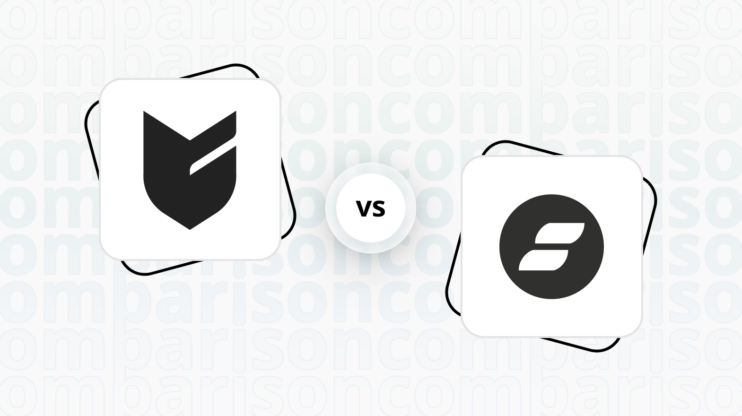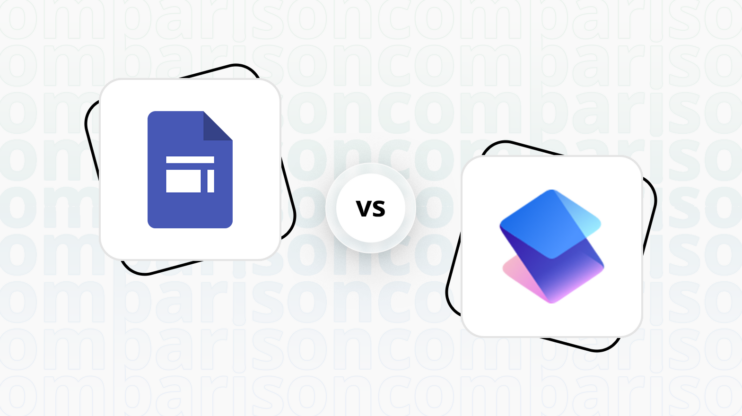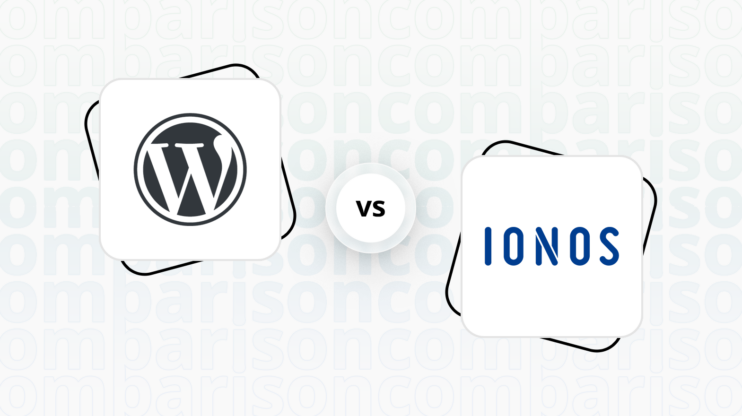Final verdict
Adobe Commerce(ex Magento) and Web.com both offer unique strengths, but they cater to different user needs and business scales.
-
Adobe Commerce(ex Magento) (Overall Grade: 6.9/10)
is a versatile and powerful platform ideal for businesses looking for extensive customization, scalability, and advanced ecommerce features. It excels in providing a robust set of tools for product management, customer engagement, and marketing, making it suitable for both B2B and B2C businesses. However, its complexity and higher cost may pose challenges for beginners or small businesses without technical expertise. -
Web.com (Overall Grade: 5.8/10)
is designed for users seeking an easy-to-use website builder with basic ecommerce capabilities. It offers a user-friendly interface, a variety of templates, and essential tools for improving online visibility and tracking website performance. While it may not match the advanced features and customization options of Adobe Commerce(ex Magento), Web.com is a practical choice for small businesses and individuals looking to establish an online presence without the need for extensive technical skills.

|

|
|
|---|---|---|
|
Design functionalities & templates |
6.7 |
6.4 |
|
Ease of use |
5.4 |
6.4 |
|
Ecommerce |
9.4 |
6.3 |
|
Website Editors |
7.8 |
6.6 |
|
Product testing options |
3.9 |
0.2 |
|
Price |
5.8 |
7.4 |
|
Hosting quality |
8.1 |
5.9 |
|
Website speed optimization |
6.6 |
5.8 |
|
Plugins and integrations |
9.1 |
6.7 |
|
Marketing features |
8.1 |
7.0 |
|
Customer support |
8.3 |
7.3 |
|
Security |
8.4 |
7.6 |
|
AI capabilities |
7.7 |
7.3 |
|
User Management |
8.0 |
5.2 |
Best for ecommerce
 9.4
9.4
 6.3
6.3
Verdict
: Adobe Commerce(ex Magento) is the superior choice for robust, scalable ecommerce solutions, while Web.com is more suited for simpler, smaller-scale online stores.
-
Adobe Commerce(ex Magento)
: With a score of 9.4, Adobe Commerce excels in providing a versatile and scalable ecommerce platform. It offers extensive customization options, advanced marketing tools, and seamless integration with third-party applications. This makes it ideal for businesses looking to scale and manage complex ecommerce operations. However, its complexity might be overwhelming for beginners. -
Web.com
: Scoring 6.3, Web.com is designed for ease of use, making it a good option for small businesses or individuals new to ecommerce. It offers essential ecommerce features and a user-friendly interface, but it lacks the advanced capabilities and scalability of Adobe Commerce. This makes it more suitable for simpler, smaller-scale online stores.
Best for informational & business websites
 7.4
7.4
 6.5
6.5
Verdict
: Adobe Commerce(ex Magento) is better suited for businesses that require extensive customization and scalability, while Web.com is more user-friendly and ideal for those who need a straightforward, easy-to-use platform.
-
Adobe Commerce(ex Magento)
: Adobe Commerce offers a high level of customization and scalability, making it suitable for businesses that need a robust and flexible platform. However, its complexity can be a challenge for beginners or those without technical expertise. With a score of 7.4, it excels in providing a comprehensive set of tools and integrations, but may be overkill for simple informational sites. -
Web.com
: Web.com is designed for ease of use, with a drag-and-drop interface and a variety of pre-built templates. Scoring 6.5, it is ideal for users who want to quickly set up an informational website without delving into complex customization. While it may lack some advanced features, its simplicity and user-friendly design make it a good choice for small businesses and individuals looking to establish an online presence.
Detailed comparison
Design functionalities & templates
Design FunctionalitiesRepresents how well each platform allows for creative design and customization of websites.Score Components:
- Template Variety (30%): Range and quality of design templates.
- Customization (30%): Flexibility and options for design alterations.
- User Interface (20%): Ease and intuitiveness of the design process.
- Responsiveness (10%): Adaptability to different devices and screen sizes.
- Innovation (10%): Unique design features and tools.
 6.7
6.7
 6.4
6.4
🏆
Winner: Adobe Commerce (formerly Magento).
If you’re looking for a platform that offers more creative control and a wide array of design features, Adobe Commerce is the preferred choice.
Adobe Commerce prioritizes flexibility over pre-built templates. While it offers a limited selection of base themes, users can access third-party themes for customization. Theme options are highly adaptable, allowing changes to layouts, colors, fonts, and the creation of custom page layouts. The platform provides a powerful theme framework for comprehensive control, including frontend editing for basic adjustments. Experienced developers can employ custom code (HTML, CSS, Javascript) for unique designs and advanced functionalities.
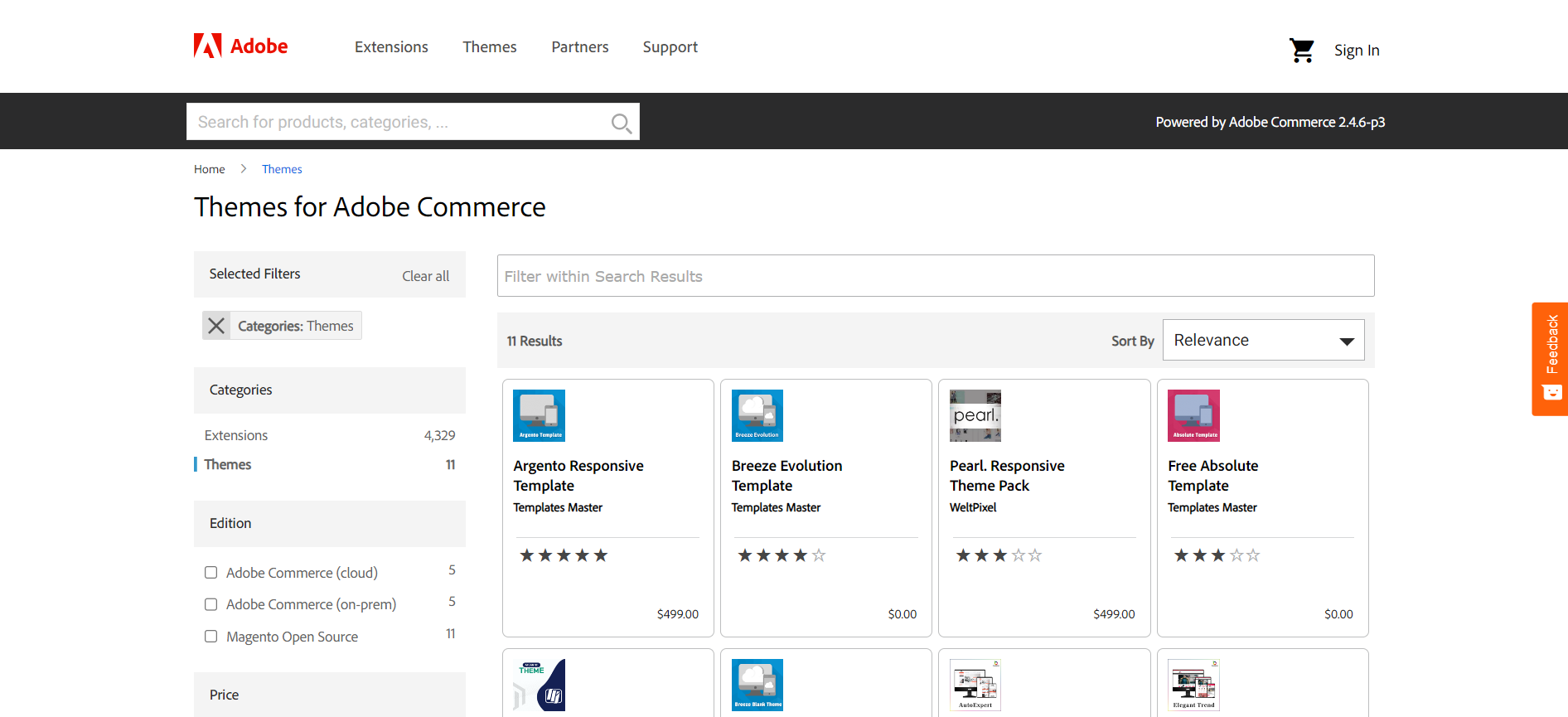
Compared to Adobe Commerce, Web.com offers over 100 website templates designed to cater to a broad spectrum of industries and personalization needs. These templates are structured to be straightforward in customization, allowing users to easily adapt their chosen designs to suit their unique brand identity through the platform’s editor. The variety encompasses categories ranging from business and services to creative arts, ensuring users can find a fitting base for their website regardless of their field or interest.
Get a head start on website creation with AI
Create a custom website tailored to your business needs 10X faster with 10Web AI Website Builder!
Ease of use
Ease of useReflects the platform’s overall user-friendliness.Score
Components:
- Learning curve (40%): Quickness and ease of getting started.
- Interface design (30%): Simplicity and intuitiveness of layout.
- User guidance (20%): Quality of tutorials and support.
- Flexibility (10%): Adaptability to various user skills.
 5.4
5.4
 6.4
6.4
🏆 Winner: Web.com
. With a score of 6.4, Web.com is easier to use than Adobe Commerce(ex Magento), which scored 5.4. Web.com’s website builder is recognized for its wide range of templates and robust customization tools, catering to various industries and preferences. On the other hand, Adobe Commerce(ex Magento) boasts high customization capabilities and scalability, but its complexity can pose challenges for beginners without technical expertise.
Learning Resources
🏆 Winner: Adobe Commerce(ex Magento)
. Adobe Commerce offers a comprehensive array of learning resources, including videos, tutorials, and instructor-led courses through Adobe Digital Learning Services. Web.com also offers a range of AI-powered tools and a comprehensive knowledge base, but Adobe Commerce’s resources are more extensive and cover a wider range of topics.
For ecommerce
EcommerceMeasures the platform’s effectiveness in supporting online business activities.Score Components:
- Ecommerce themes and templates (20%): Variety and design of templates.
- Product management (25%): Ease of managing and organizing products.
- Payment options (25%): Variety and convenience of payment methods.
- Ecommerce features (20%): Features for managing an ecommerce store.
- Integration (10%): Compatibility with external e-commerce tools and services.
 9.4
9.4
 6.3
6.3
Adobe Commerce (ex Magento) and Web.com both offer ecommerce capabilities, but they cater to different needs and levels of complexity.

|

|
|
|---|---|---|
|
Ecommerce themes and templates |
7.5 |
5.5 |
|
Product page customization |
9.0 |
6.0 |
|
Payment processing and commissions |
7.8 |
6.5 |
|
POS capabilities |
7.0 |
4.0 |
|
Payment gateways |
8.5 |
7.0 |
|
Product numbers |
7.5 |
5.0 |
|
Additional ecommerce features |
8.0 |
6.0 |
Adobe Commerce (ex Magento) ecommerce features:
- Product and Inventory Management
- Order Management
- Customer Management
- Marketing and Promotions
- Payment Processing
- Multi-Channel Commerce
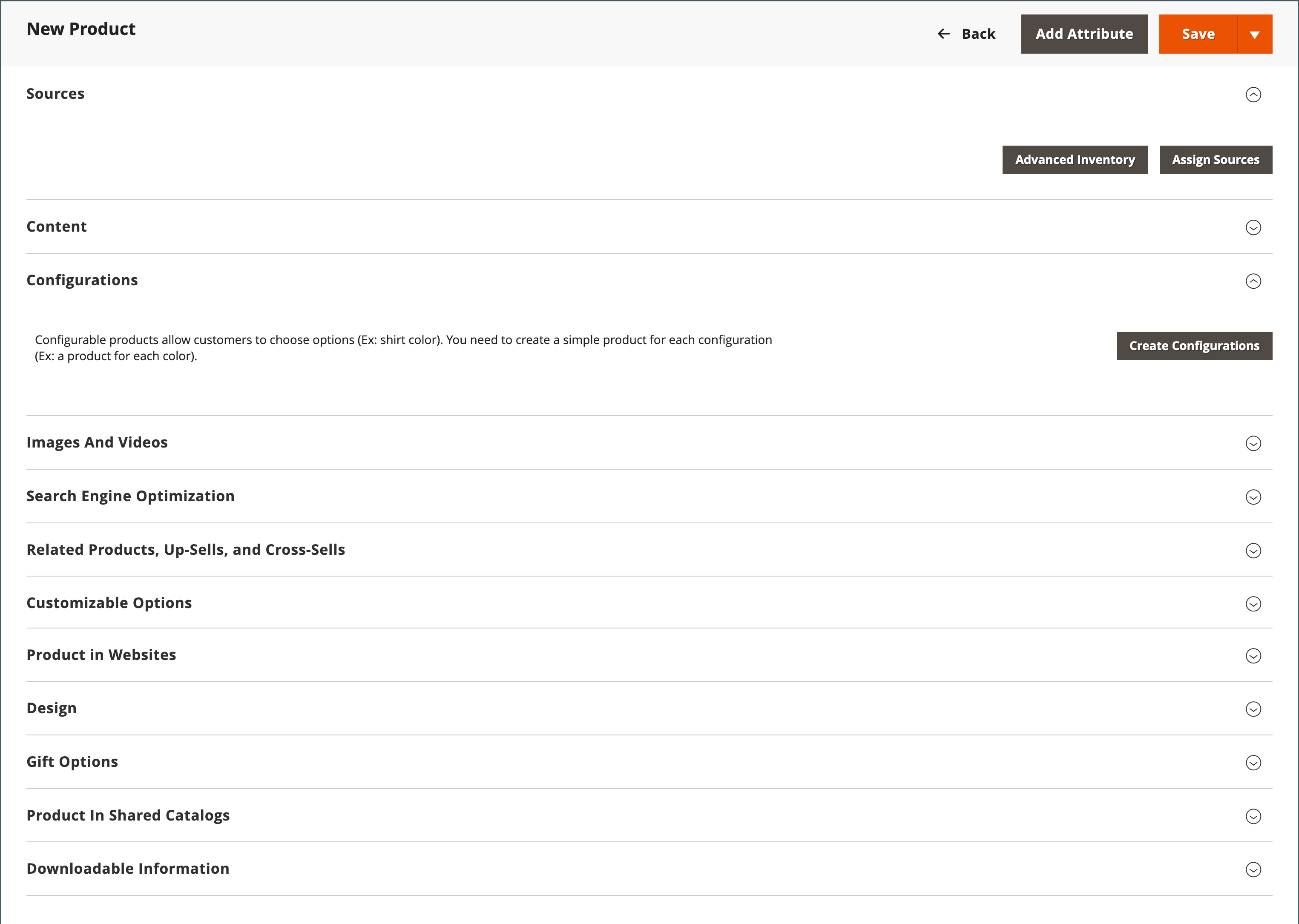
Web.com ecommerce features:
- Product listing
- Marketing Features
- Shipping options
- Payment Gateways integration
Ecommerce themes & templates
Adobe Commerce, powered by Magento, offers a comprehensive ecosystem for ecommerce themes and templates, enabling businesses to customize their online stores to meet specific branding and functionality requirements. Themes in Adobe Commerce serve as the visual and structural framework for online stores, incorporating layout files, template files, translation files, and skins to define the look and feel.
On the other hand, Web.com provides around 15 ecommerce templates designed to help businesses quickly launch and customize their online stores, emphasizing ease of use, cost-effectiveness, and professional design. These templates are compatible with Web.com’s website builder, facilitating straightforward customization and integration for digital storefronts.
Product page customization
Adobe Commerce offers extensive customization options for product pages, enabling businesses to enhance the user experience and tailor product displays to their specific needs. This includes customizing layouts, product attributes, images and media, dynamic content like related products and reviews, and custom product options such as configurable and bundled products.
Web.com’s website builder offers a suite of tools for e-commerce stores, including product category management for organizing inventory and improving navigation, and product listing features for adding detailed product information and images. Users can create and manage product variants to accommodate items with multiple options, enhancing the customer shopping experience.
Payment processing
Adobe Commerce offers integrated payment solutions and commission management for seamless online transactions, alongside POS integration for omnichannel retail experiences. It supports a wide array of payment gateways, ensuring flexible and secure payment options for customers.
Web.com supports popular payment gateways like PayPal, Stripe, and all major debit and credit cards, ensuring a wide array of payment options for customers. Details on transaction commissions, particularly whether Web.com imposes additional fees on transactions processed through these gateways, were not clearly stated in the reviewed sources. Typically, the payment gateways themselves may charge transaction fees; however, the presence of any supplementary commissions from Web.com remains unspecified.
Website Editors
Website EditorsEvaluates the platforms’ website building and editing capabilities.Score Components:
- Customization tools (40%): Range and power of editing features.
- Editor usability (30%): User experience within the editor.
- Design flexibility (20%): Freedom in layout and design changes.
- Update and maintenance ease (10%): Simplicity of updating and maintaining the site.
 7.8
7.8
 6.6
6.6
🏆
Winner: Adobe Commerce (ex Magento)
. Adobe Commerce (ex Magento), with a score of 7.8, offers a robust ecommerce platform designed for flexibility and scalability, enabling businesses to create customized online stores with extensive features for product management, customer engagement, and analytics. It supports both B2B and B2C models and offers a range of tools for marketing, SEO, and inventory management, along with a vast ecosystem of extensions. Suitable for businesses of all sizes, Adobe Commerce provides options for cloud-hosting or self-hosting, catering to a wide array of ecommerce needs.
Web.com’s website builder, scoring 6.6, offers a user-friendly platform with a variety of templates and a drag-and-drop interface for easy customization, albeit with some creative limitations due to its row-based layout. It supports basic e-commerce capabilities suitable for small businesses, alongside features like analytics, social media integration, and email services. However, for more advanced functionalities like promotional pop-ups, calendars, or comprehensive blogging tools, the platform may fall short unless users are willing to add custom code.
Mobile editor/app
 0
0
 0
0
🏆
Winner: Not applicable
. Neither Adobe Commerce (ex Magento) nor Web.com offer a dedicated mobile app for website editing. Therefore, this section is not applicable for comparison.
Adobe Commerce (ex Magento) focuses on providing robust desktop editing experiences, offering a comprehensive suite of features for ecommerce websites. However, it may be overwhelming for beginners due to its emphasis on ecommerce features.
Web.com, on the other hand, provides a user-friendly interface suitable for beginners, allowing users to edit various aspects of their website, including content, design, layout, and blog management. The platform is particularly beginner-friendly, making it easy for users with no prior website building experience.
In summary, Adobe Commerce (ex Magento) receives a higher rating due to its comprehensive suite of features for ecommerce websites, while Web.com is strong in providing a user-friendly interface suitable for beginners.
Product testing options
Product Testing OptionsAssesses the options for trying out platform features before commitment.Score Components:
- Trial quality (40%): Extent and usefulness of the trial or free version.
- Feature accessibility (30%): How many features are available to test.
- Trial duration (20%): Length of the trial period.
- Ease of transition (10%): Smoothness of moving from trial to paid plans.
 3.9
3.9
 0.2
0.2
Overall Result
:
Adobe Commerce(ex Magento) wins
. Adobe Commerce(ex Magento) scores 3.9, while Web.com scores a low 0.2. Adobe Commerce(ex Magento) does not offer a free or trial version, but it does allow potential users to request a demo version to test premium features. Web.com, on the other hand, does not offer any free or trial versions, and it does not allow testing of any features before purchasing a plan. However, it does offer a 3-day money-back guarantee.

|

|
|
|---|---|---|
|
Free Plan |
No | No |
|
Trial Duration |
No | No |
|
Testing Premium Features |
Possible with demo request |
Not possible |
|
Money Back Guarantee |
No |
3-day money back guarantee |
Price
PriceLooks at the cost-effectiveness and value for money of each platform.Score Components:
- Plan value (40%): What each pricing tier offers.
- Transparency and clarity (30%): Clearness of pricing structures.
- Flexibility of plans (20%): Range of options to suit different budgets.
- Hidden costs (10%): Additional expenses not included in the plan.
 5.8
5.8
 7.4
7.4
Web.com offers more transparent and affordable pricing options, while Adobe Commerce(ex Magento) caters to a more premium market with personalized quotes.

|

|
|
|---|---|---|
|
$10-$20 |
No offering at this amount. |
Website ($19.99/month): AI-powered Website Builder. Free domain & domain privacy for 1 year. Professional email for 3 months. SSL Certificate for 1 month. 1 hour expert design support. Social & email marketing tools. Value for price: 6.5 |
|
$20-$30 |
No offering at this amount. |
Website + Marketing ($24.99/month): All features in the Website plan. Enhanced marketing tools. Appointment scheduling. Value for price: 7.0 |
|
$30-$40 |
No offering at this amount. |
eCommerce ($34.99/month): All features in the Website + Marketing plan. Online store with secure checkout. Sell on multiple marketplaces like Facebook, Instagram, Amazon, eBay, etc. Value for price: 8.5 |
|
$2000+ |
Adobe Commerce Pro and Managed Services ($2000/month): Adobe Commerce Pro and Managed Services are designed to deliver scalable, secure, and extensive eCommerce solutions tailored to a wide range of business demands. It offers a comprehensive set of ecommerce tools, including product and inventory management, efficient order processing, customer account management, targeted marketing capabilities, diverse payment processing options, robust security measures, and scalability to accommodate business growth. It also offers both self-hosted and cloud-hosted options, providing flexibility and optimized performance. While it does not have an AI website builder, it offers a powerful theme framework for comprehensive control, including frontend editing for basic adjustments. Experienced developers can employ custom code for unique designs and advanced functionalities. |
No offering at this amount. |
location. As a result in rare cases the prices displayed here can differ from the ones you see on their
websites.
Hosting quality
Hosting
qualityExamines the reliability and performance of the hosting solutions.Score Components:
- Uptime (40%): Consistency and reliability of website availability.
- Speed (30%): Loading times and performance.
- Bandwidth and storage (20%): Sufficiency of resources provided.
- Data centers (10%): Quality and distribution of hosting infrastructure.
 8.1
8.1
 5.9
5.9
🏆
Winner: Adobe Commerce(ex Magento)
Adobe Commerce offers robust and scalable eCommerce solutions with both self-hosted and cloud-hosted options, providing flexibility and optimized performance. Web.com, on the other hand, offers shared hosting with unlimited storage and daily backups but does not provide uptime statistics or guarantees, and does not disclose the locations of its data centers.

|

|
|
|---|---|---|
|
Do they offer hosting? |
Yes, Adobe Commerce offers robust and scalable eCommerce solutions with both self-hosted and cloud-hosted options, providing flexibility and optimized performance through technologies like Fastly Image Optimization. |
Yes, with unlimited storage and daily backups |
|
Data Centers: |
Adobe Commerce on Cloud infrastructure Leverages Amazon Web Services (AWS), Specific data center details not publicly available |
Web.com does not disclose the locations of its data centers |
|
Type of hosting: |
Self Hosting, Managed Hosting |
Shared hosting |
|
Uptime: |
Uptime Guarantee for Adobe Managed hosting is provided |
Web.com does not provide uptime statistics or guarantees |
Website Speed Optimization
Website Speed OptimizationEvaluates optimization of website loading timesScore Components:
- PageSpeed Score (30%): Google’s score indicating performance optimization.
- Loading Time (30%): The average time until a website is fully interactive.
- Mobile Optimization (15%): Optimization effectiveness for mobile devices.
- Resource Optimization (15%): Optimizing images, scripts, and other heavy resources.
- CDN Usage (10%): Use of CDN to enhance speed across geolocations.
 6.6
6.6
 5.8
5.8
🏆 Winner: Adobe Commerce (ex Magento)
Both Adobe Commerce (ex Magento) and Web.com have strategies in place for website speed optimization, but Adobe Commerce (ex Magento) takes the lead with a more comprehensive approach and a focus on Core Web Vital improvements.

|

|
|
|---|---|---|
|
Focus |
CDN, Database optimization, Caching, Indexing |
Mobile Optimized design, Code Minification, Caching, Image Optimization |
|
Performance Tools |
Google Lighthouse, PageSpeed Insights |
Google PageSpeed Insights |
|
Key Strategies |
CDN, Database optimization, Caching, Indexing |
Mobile Optimized design, Code Minification, Caching, Image Optimization |
|
Load Times |
Varies widely, dependent on optimization |
Varies depending on optimization and website complexity |
|
Page Speed Scores Range |
Scores vary; influenced by plugins, images |
Varies depending on optimization and website complexity |
|
Core Web Vitals Improvement |
Emphasis on LCP, FID, CLS improvements |
No information provided |
Adobe Commerce (ex Magento) focuses on a variety of strategies for speed optimization, including CDN, database optimization, caching, and indexing. The platform emphasizes improvements in Core Web Vitals, specifically LCP, FID, and CLS. However, the load times and PageSpeed scores can vary widely, depending on the level of optimization and the use of plugins and images.
On the other hand, Web.com’s approach to speed optimization includes mobile-optimized design, code minification, caching, and image optimization. However, the platform does not provide any information on their Core Web Vitals improvements. The load times and PageSpeed scores can vary depending on the level of optimization and the complexity of the website.
Get a head start on website creation with AI
Create a custom website tailored to your business needs 10X faster with 10Web AI Website Builder!
Plugins and integrations
Plugins and integrationsMeasures the range and effectiveness of additional plugins and integrations.Score Components:
- Variety of options (40%): Range of available add-ons.
- Integration smoothness (30%): Ease of integrating plugins into the site.
- Quality of plugins (20%): Functionality and reliability of the options.
- Custom integration capabilities (10%): Support for custom or third-party integrations.
 9.1
9.1
 6.7
6.7
🏆 Winner: Adobe Commerce(ex Magento).
Adobe Commerce(ex Magento) scores a high 9.1, offering a vast array of extensions and plugins, estimated to be in the tens of thousands, covering aspects such as marketing, payment processing, shipping, content management, security, and optimization. Web.com, scoring 6.7, provides a suite of plugins and integrations for websites built on its platform, including features for email marketing, social media engagement, analytics, and eCommerce capabilities. However, Adobe Commerce(ex Magento)’s extensive range of plugins and seamless integrations give it the upper hand.
It is worth mentioning that while Adobe Commerce(ex Magento) offers a wide range of paid plugins, Web.com includes basic features in its various pricing plans, and more sophisticated features or premium plugins might require an upgrade to higher-tier plans or involve additional fees.
Adobe Commerce(ex Magento) Applications
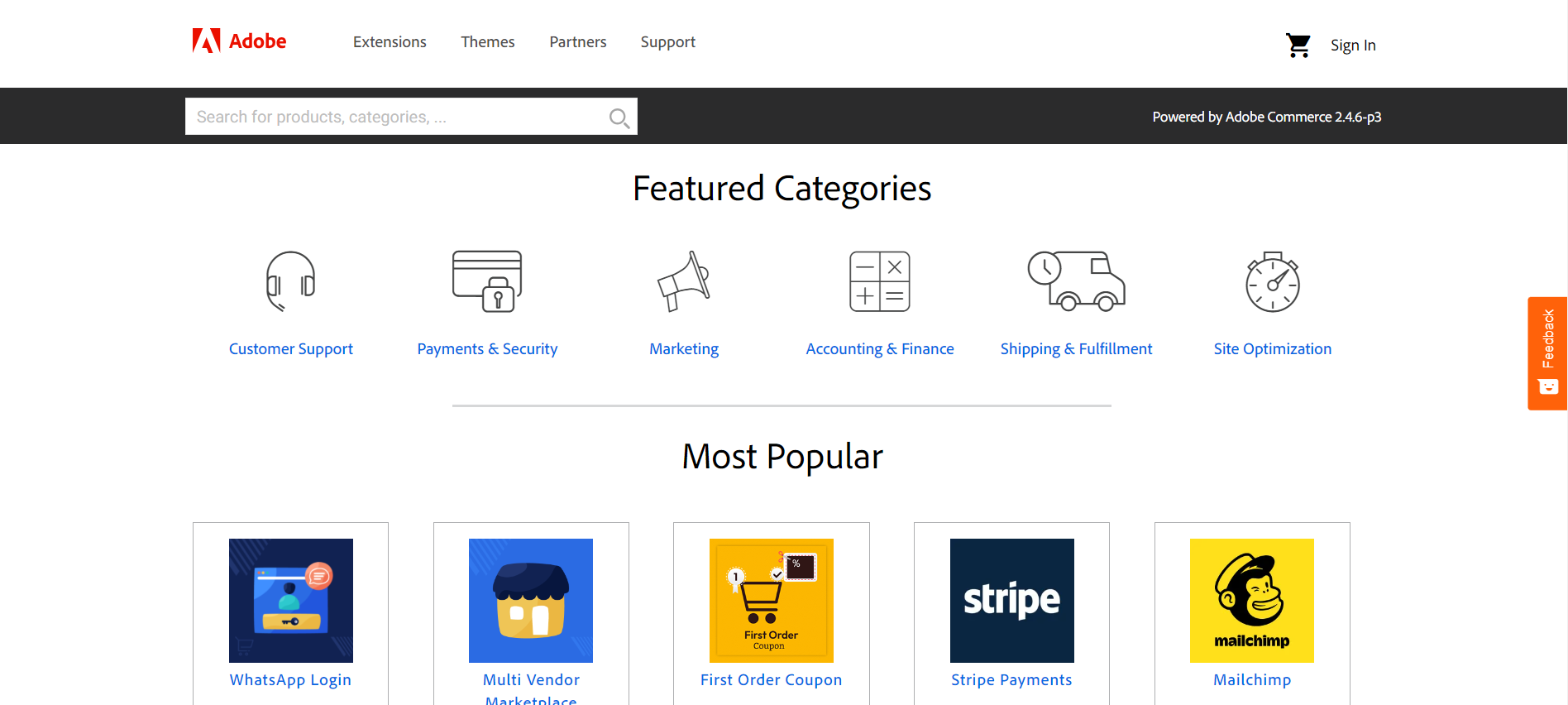
Marketing Features
Design FunctionalitiesRepresents how well each platform allows for creative design and customization of websites.Score Components:
- Template Variety (30%): Range and quality of design templates.
- Customization (30%): Flexibility and options for design alterations.
- User Interface (20%): Ease and intuitiveness of the design process.
- Responsiveness (10%): Adaptability to different devices and screen sizes.
- Innovation (10%): Unique design features and tools.
 8.1
8.1
 7.0
7.0
🏆
Overall Winner: Adobe Commerce(ex Magento)
. Adobe Commerce(ex Magento) stands out for its advanced marketing tools, especially in analytics and ad campaign management. Web.com is strong in SEO and email marketing, ideal for businesses looking to enhance their online presence.

|

|
|
|---|---|---|
|
SEO Tools |
|
|
|
Email Marketing |
|
|
|
Blogging |
Can be integrated with platforms like WordPress for content marketing purposes. |
|
|
Social Media Integration |
|
|
|
Analytics and Reporting |
Adobe Commerce integrates with Google Analytics and other analytics tools, providing detailed insights into your ecommerce activities. |
Basic website analytics are included, and there’s also support for easy Google Analytics and Tag Manager setup. |
|
Ads and Promotions |
Advanced marketing tools for creating and managing promotions, coupons, and personalized content. |
Yes |
Customer Support
Customer supportEvaluates the quality and availability of support options.Score Components:
- Response time (40%): Speed of support responses.
- Support quality (30%): Effectiveness and helpfulness of the support.
- Availability (20%): Range of support channels (phone, chat, email).
- Resource richness (10%): Quality of self-help and educational materials.
 8.3
8.3
 7.3
7.3
🏆 Winner: Adobe Commerce(ex Magento)
. When comparing Adobe Commerce(ex Magento) vs Web.com, Adobe Commerce(ex Magento) stands out with its 24/7 customer support available through phone, email, and live chat. The platform also offers a comprehensive knowledge base, community forums, and extensive documentation, making it easier for users to find solutions to their problems. For enterprise users, Adobe Commerce provides dedicated account management and access to a global network of experts, ensuring top-notch support for large-scale operations.
Web.com also offers 24/7 customer support through phone, email, and live chat, with a strong emphasis on their 24/7 phone line for immediate assistance. While Web.com provides reliable support for general users, it lacks the specialized enterprise-level support that Adobe Commerce offers, making it less suitable for larger businesses with complex needs.
Security
SecurityLooks at the platforms’ security measures and data protection.Score Components:
- Data protection (40%): Safeguards for user and customer data.
- SSL and encryption (30%): Implementation of secure connections.
- Compliance (20%): Adherence to industry security standards.
- Regular updates (10%): Frequency of security updates and patches.
 8.4
8.4
 7.6
7.6
🏆
Winner: Adobe Commerce(ex Magento)
. Adobe Commerce (formerly known as Magento) takes security seriously, providing advanced encryption and access control measures for private data storage and protection. Regular security updates and patches are provided to address vulnerabilities, and secure payment processing and encryption are used to protect customer data. Tools for monitoring and detecting suspicious activity on the website are also provided.
Web.com, on the other hand, offers a range of services focused on private data storage and protection, including website staging environments and email solutions. They also offer website security measures through their partnership with SiteLock Security, which provides cloud-based security services that scan websites for malware and vulnerabilities. However, Adobe Commerce’s comprehensive security measures and higher security score give it the edge in this comparison.
AI Capabilities
AI capabilitiesMeasures the effectiveness of AI-driven features and tools.Score Components:
- Automation efficiency (40%): Impact of AI on streamlining processes.
- Personalization (30%): AI-driven customization for users or customers.
- AI-Assisted design (20%): Role of AI in website design and functionality.
- Data analysis (10%): Use of AI in interpreting user data and analytics.
 7.7
7.7
 7.3
7.3

|

|
|
|---|---|---|
|
AI Website Builder |
|
Web.com offers an AI website builder to simplify the website creation process |
|
Personalized Recommendations |
Adobe Commerce uses AI to provide personalized product recommendations |
Web.com uses AI to provide personalized product recommendations |
|
Inventory Management |
AI is used for inventory management and price optimization |
AI is used for automated inventory management |
|
Content Generation |
AI is used to streamline content creation and optimization |
Web.com has an AI Writer tool for content creation |
|
Additional AI Features |
AI-powered chatbots, security, and marketing automation |
AI Domain Generator and AI Logo Builder |
🏆 Winner: Web.com
. Web.com’s AI capabilities, particularly its AI website builder and AI Writer tool, make it more user-friendly and accessible for users with no technical skills. It also uses AI to enhance the online shopping experience and streamline operations.
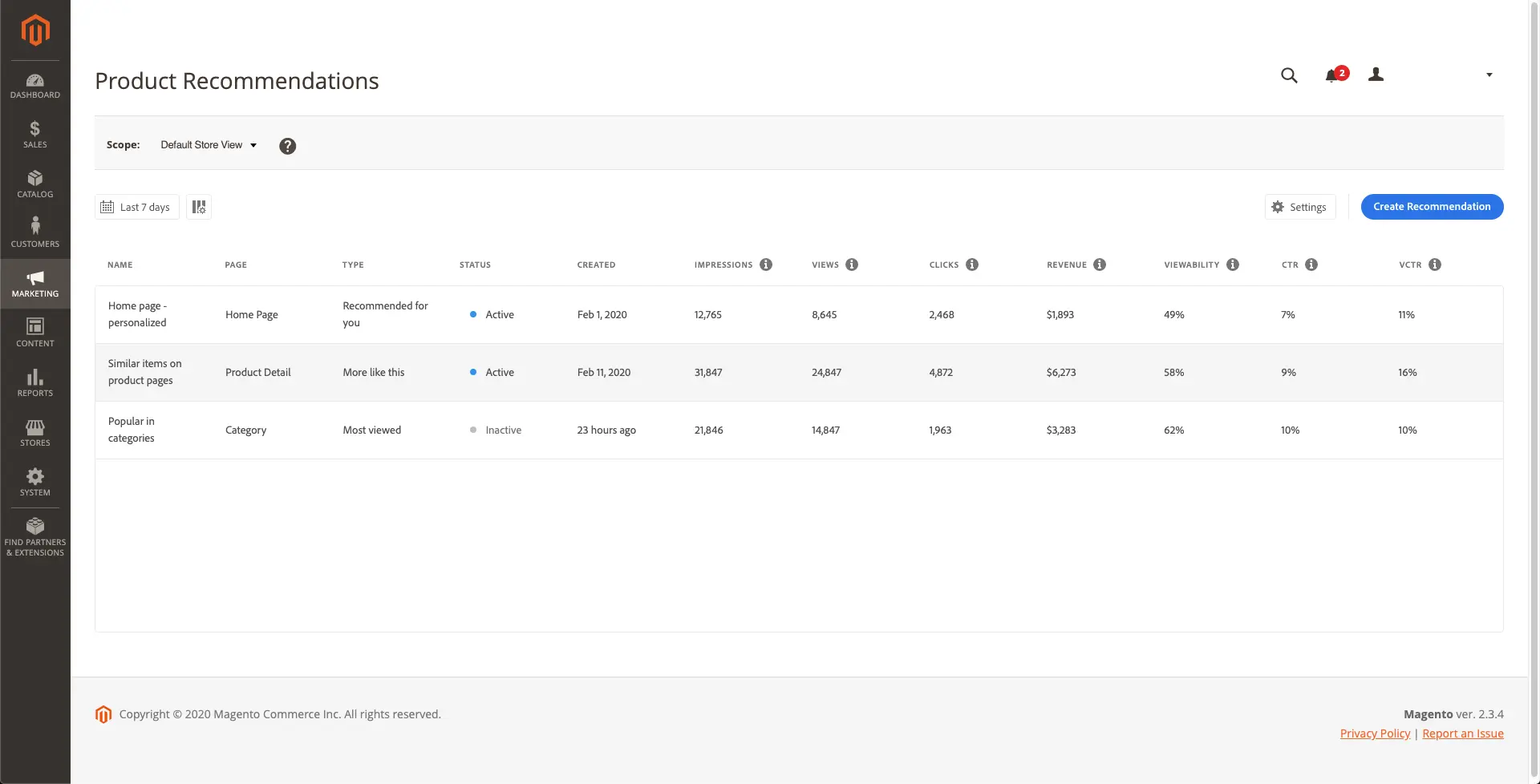
Adobe Commerce, with a score of 7.7, integrates AI across various aspects of eCommerce, enhancing customer service, security, and marketing. However, it does not have an AI website builder.
User Management
User ManagementAssesses the platforms’ capabilities in managing user roles, permissions, and accessibility.Score Components:
- Role Customization (40%): Flexibility in creating and defining user roles and
permissions. - Ease of Management (30%): User interface and tools for managing users.
- Access Control (20%): Effectiveness of access control measures for different user
levels. - Scalability (10%): Ability to manage a growing number of users efficiently.
 8.0
8.0
 5.2
5.2
🏆 Winner: Adobe Commerce(ex Magento)
. Adobe Commerce (ex Magento) and Web.com have different approaches to user management.
- Adobe Commerce (ex Magento) allows the number of users who can edit a website to depend on user licenses and roles. User licenses, bought separately, determine the total number of users allowed, with additional licenses purchasable as needed. Roles and permissions, managed within the available licenses, control access and modifications, ensuring data security and efficient workflow.
- Web.com allows multiple user accounts, however the platform does not specify how many accounts are supported.
Adobe Commerce(ex Magento) User Roles and Access Levels:
| Role | Description | Access Highlights |
|---|---|---|
| Administrator | Has full permissions to all aspects of Adobe Commerce, including global settings and data. | Full access to all settings, data, and functionalities within Adobe Commerce. Can manage other users’ roles and permissions. |
| Store Administrator | Responsible for the day-to-day management of the store, including products, orders, and customer service. | Access to manage products, process orders, and handle customer inquiries, but may have restricted access to sensitive global settings or data. |
| Design Team Member | Focuses on the aesthetic and user experience aspects of the store, working on content design and layout. | Access to content design tools and functionalities, but restricted from accessing customer, order information, and other sensitive areas. |
| Default User (B2B) | Has view-only access to company profile and credit information, and full access to activities related to sales and quotes. | Full access to sales and quotes activities; view-only for company profile and credit information. |
| Senior Buyer (B2B) | Engaged in purchasing, with access to all Sales and Quotes resources, and view-only permissions to the Company Profile, User and Teams, Payment Information, and Company Credit. | Comprehensive access to Sales and Quotes, with limited viewing rights for company’s financial and profile data. |
| Assistant Buyer (B2B) | Assists in purchasing activities, with permissions to place orders using Checkout with Quote, and to view orders, quotes, and company profile information. | Permission to execute orders and access relevant purchasing data; view-only access to company profile information. |
Web.com User Roles and Access Levels:
| Role | Description | Access Highlights |
|---|---|---|
| Primary | The main account holder or primary user. | Edit primary user info Purchase products Manage and renew products and services |
| Admin | Users with administrative privileges besides the primary. | Edit payment information Add/Edit/Delete user roles Manage and renew products and services Edit WHOIS Admin and Tech user info |
| Tech | Users with technical responsibilities. | Manage and renew products and services Edit WHOIS Admin and Tech user info |
Additional Features

|

|
|
|---|---|---|
|
SSL Certificate |
|
|
|
Custom Domain |
|
|
|
Free Custom Domain Included |
|
|
|
International Domains |
|
|
|
Mobile Responsive |
|
|
|
Page Speed |
|
|
|
Website Builder Mobile App |
|
|
|
Convert a Website To An App |
|
|
|
Website Analytics |
|
|
|
Multilingual Sites |
|
|
|
Multiple Users |
|
|
User Feedback
Adobe Commerce (formerly Magento Commerce) receives high praise for its comprehensive ecommerce solutions, offering features like customer and order management, scalability, and customization options. Users appreciate its flexibility and ease of use, although some mention a learning curve due to its extensive features. Despite occasional drawbacks like slow speed or complexity, Adobe Commerce proves beneficial for businesses seeking robust ecommerce platforms, aiding in sales growth, customer management, and overall efficiency in managing online stores.
Web.com, while not reviewed on G2, is known for its user-friendly drag-and-drop functionality and pre-built templates, making it accessible for those without coding expertise. Its emphasis on mobile responsiveness and inclusion of SEO tools cater to users looking to establish or enhance their online presence. However, the lack of detailed user feedback makes it challenging to gauge overall user satisfaction when comparing Adobe Commerce(ex Magento) vs Web.com.
The making of this blog
We followed a clear, step-by-step process to write and research this article.
FAQ
Which platform is better for large-scale ecommerce, Adobe Commerce (ex Magento) or Web.com?
Can I build a simple website without coding skills on Adobe Commerce or Web.com?
How do Adobe Commerce and Web.com compare in terms of user support and resources?
Which platform offers better marketing tools for growing an online business?
Is Web.com a good alternative to Adobe Commerce for small businesses?










